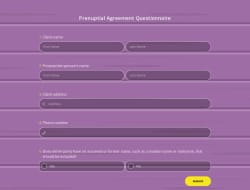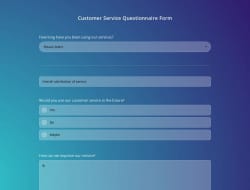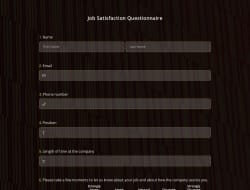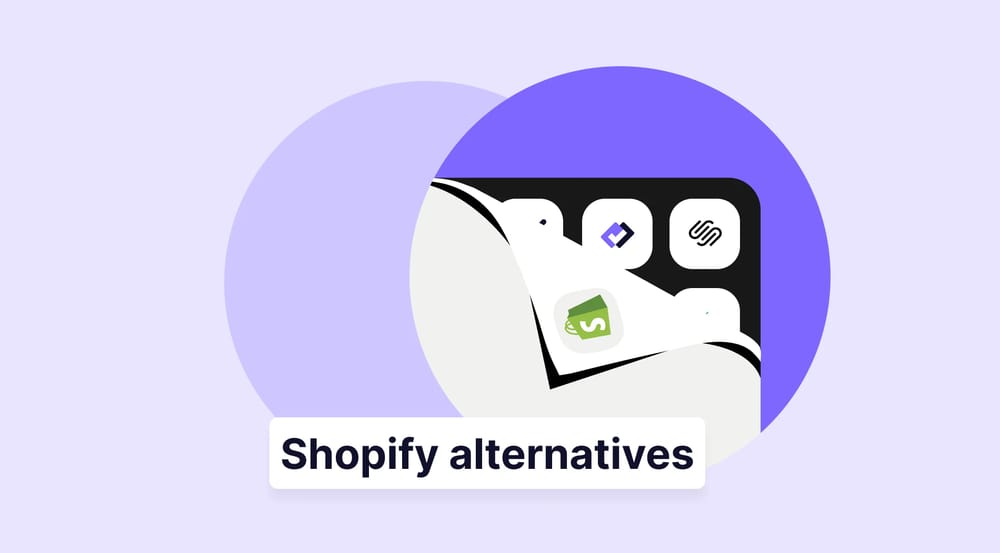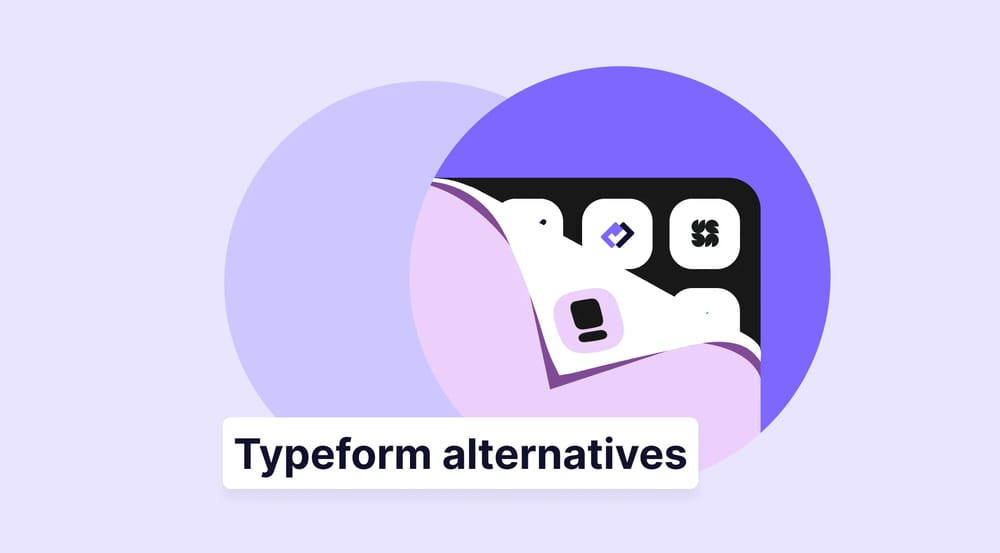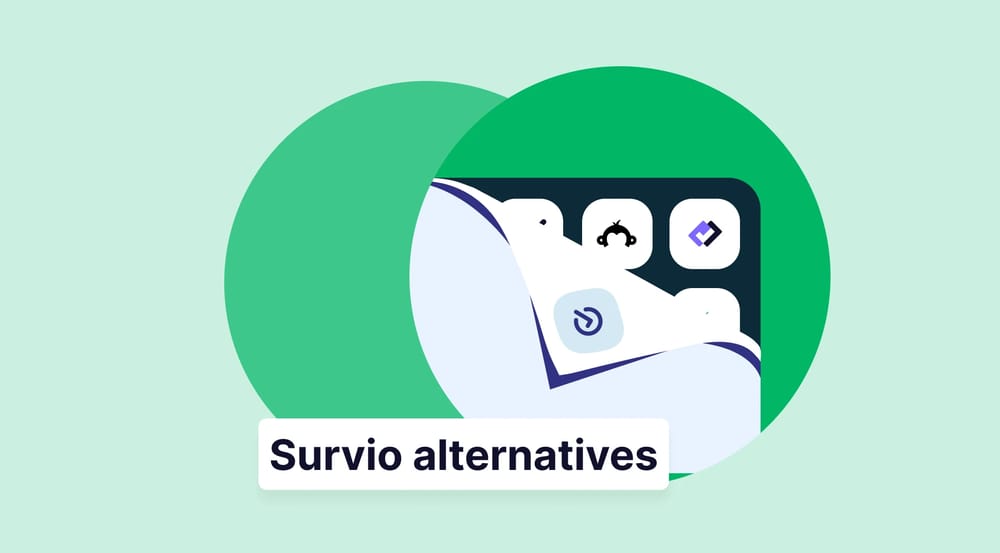Questionnaires are a common method for gathering data during research and have been for a long time. One of the most popular and significant methods for data collecting in daily life, questionnaires are highly versatile and adaptive. Depending on the type of questions, these tools can be categorized as both quantitative and qualitative methods. Even though questionnaires are a standard research instrument, many people are still unsure of the kinds of questions that ought to be asked. And it is essential to determine these question types well.
With forms.app, you have the opportunity to benefit from free surveys and templates. In this article, we will talk about what questionnaires are, the 5 types of questionnaires and their purposes, the types of questions commonly used in surveys, and more.
What is a questionnaire?
A questionnaire is a research tool that includes a list of inquiries that must be answered by a predetermined sample of people. Here, the research should be collected to confirm or refute a hypothesis. According to the format of the questions and the expected responses, they can be broadly categorized as “qualitative method” and “quantitative method.” The usage areas and shapes of each type can, however, be used to draw more precise distinctions.
- The qualitative method: Qualitative research techniques answer the questions "how" and "why? When there is no predetermined list of questions and it is more productive to examine themes through dialogue, these strategies are suitable. The goal of quantitative method is to gather data that can be expressed numerically.
- The quantitative method: More emphasis is placed on statistical analytic skills in quantitative research. In quantitative studies, the identical questions are posed to each respondent. The most popular method for gathering quantitative data is surveys and questionnaires.
Both qualitative and quantitative research approaches can be used by researchers to collect data. These two study techniques both adhere to the scientific process. It combines many types of questions, such as open-ended and closed-ended queries, allowing the researcher to collect copious amounts of data from respondents, even when the researcher is not personally there to supervise data collection.

What is a questionnaire?
5 questionnaire types and their purposes
By posing standardized questions to help you obtain the correct responses, a questionnaire's goal is to increase your study dataset. On the other hand, customers have ever-changing demands and demands. Your customers now rely on you to handle problems before they become bigger problems.
By using questionnaires, you may better understand your consumers' goals and needs so that you can satisfy them. And in this respect forms.app represents one of the quite popular online platforms for facilitating data collection through questionnaires. Many questionnaires and questionnaire templates are available on this platform for your diverse needs. Also, the questionnaire maker is free.
There are many kinds of questionnaires. For example, customer satisfaction questionnaires, exit questionnaires, and research questionnaires. But here we talked about the main types of surveys that you may encounter more. Let's now examine the various survey types that you might employ.
- Online questionnaire: An online questionnaire is a collection of uniform questions that is assembled and disseminated online. You can cut down on time spent gathering data by using an online questionnaire. It is also a form of data collection that is reasonably priced. You do not need to spend money printing questionnaires or physically distributing them to respondents. You can easily collect replies from a big pool of respondents because the questionnaire was designed and distributed online.
Through the use of online data gathering tools like forms.app, it asks a series of questions of respondents to collect data from them. It contains a form builder that enables you to make many types of research questions.
- Telephone questionnaire: This is a technique for gathering information from responders over the phone. In this instance, the researcher directly contacts various survey respondents and poses a series of pertinent research-related questions to them. This survey method works well when you only have a few questions that need immediate answers. But it is an expensive method of collecting data in research, and there could be security problems.
- Face-to-face questionnaire: Face-to-face questionnaires allow the researcher to communicate directly with the respondent and ask the questions listed in the survey. You can gather both qualitative and quantitative data from respondents using this technique. You can better understand the context of respondents' responses to your question when you do face-to-face interviews with them. Face-to-face interviews provide you the chance to watch for nonverbal cues and other subtleties that might help you comprehend the information gleaned from the conversation.
- Mail questionnaire: A mail questionnaire is a type of questionnaire that is delivered to certain people, asking them a series of questions about a particular topic as part of an interview or survey that is used to do research on that issue. The majority of the mail questionnaire's questions are relevant to the research topic and depend on the respondents' prior knowledge.
It is possible to maintain the anonymity of the person filling out the questionnaire's responses in order to obtain truthful responses from the respondent. As there is no incentive for respondents to fill out the survey, the response rate to these questions is relatively low, and it is outdated.
- E-mail questionnaire: Email questionnaires are online polls that are disseminated by email. It can be helpful for obtaining prompt answers to brief questionnaires with relatively straightforward questions. Instead of visiting an external website, the participant can respond to the questionnaire via email. However, unsolicited emails or bulk emails might be automatically labeled as 'spam' or deleted by the recipient. You can clean your email list to ensure your emails don’t land in your recipient’s spam. You can limit the number of questions and include only key questions, which will help you reduce the email bounce rate and get better response rates.

Questionnaire types
Most used question types in questionnaires
Choosing an appropriate survey question type should be fairly easy if you've already decided on precise survey goals. For example, your choice of questions and response probabilities may vary depending on whether you choose to measure customer happiness, calculate your net supporter score (NPS), or conduct market research. Your choice of survey questions may be influenced by a variety of variables:
- What kind of information do you require
- The level of knowledge you require
- The time your respondents have to respond
There are many types of survey questions. The most common of these include closed-ended survey questions and categorical and interval/ratio questions. Let's take a look at the types of questions you can use in surveys.
A - Closed-ended questions
Closed-ended questions are essentially ones that offer respondents a predetermined list of response possibilities to select from. Typically, you can respond to those with a straightforward yes or no, a predetermined number on a fixed point scale, or with a specific piece of information. Open-ended questions are the opposite of closed-ended questions; however, we'll go into more depth about those in a later section of the text.

Closed-Ended Questions
B - Categorical questions
If you want to acquire a quick, straightforward count, categorical or nominal survey questions are ideal. For example, 87% of respondents felt online surveys are entertaining," or "49% of men and 65% of women have taken a survey this year." There are various types of survey questions that fall under this category, with the following being the most typical ones:
- Dichotomous (‘Yes/No’) questions: These are what we typically refer to as "yes/no" questions or survey questions that can be answered with a simple "yes" or "no.” Dichotomous questions are the simplest method there is for "screening out" respondents who are unimportant to your survey. Additionally, it can be used to divide respondents into those who have used your services and those who have not yet.
- Multiple-choice questions: While single or multiple replies are possible, multiple-choice survey questions often provide three or more predetermined answer possibilities. If you believe there is a chance that the respondent's response might differ from all of the provided possibilities, it might be a good idea to include the editable "other" category as one of the answer choices for this kind of survey question.
- Checkbox questions: Checkbox questions are a sort of multiple-choice question that adds the versatility of allowing you to select more than one answer. Respondents can provide as many answers to the question as you allow, and you can add as many answers as you want.
C - Interval/ratio questions
- Opinion Scale Questions: When using a rating scale in a survey question, respondents are asked to evaluate a topic in light of a preset dimension. Usually, the question offers a number of scale-free answer choices that you might choose from. Clarifying the gradation method and outlining the values is crucial because the majority of these scales use numerical values. It would be wise to utilize the same rating scales for all of your ranking questions when developing them.
- Likert Scale Questions: A person can express how much they agree or disagree with a statement using the Likert scale, a five- (or seven-) point scale. A Likert scale (usually) offers five options for responses to a statement or question, allowing respondents to express their level of agreement or disapproval with the statement or question on a positive-to-negative scale.
- Matrix Questions: If you want to ask numerous questions in succession with the same answer alternatives, matrix survey questions are ideal. A matrix question is essentially a series of questions using the rating scale or Likert scale. While matrix questions can greatly simplify large-scale surveys, some respondents may find them perplexing, and they aren't always the ideal option for mobile devices.

Interval/Ratio Questions
D - Open-ended questions
In surveys with open-ended questions, participants can enter their own responses in the given text field. This indicates that there are no predetermined responses and that respondents are free to express their opinions in whatever manner they see fit. Additionally, it allows them to elaborate on their responses. You must carefully determine the ideal number of open-ended questions while developing a survey. You don't want to overburden your users because responding to these inquiries can be laborious and time-consuming. Additionally, gathering and evaluating survey replies is more challenging than with closed-ended questions due to the lack of uniform answer alternatives.

Open-Ended Questions
E - Dropdown selection questions
Selection questions are similar to multiple choice questions with one answer. They offer respondents a drop-down list of options from which to choose one. They are helpful when there is a big list of replies that wouldn't be appropriate to display all at once.

Dropdown selection questions
Free questionnaire templates to get started faster
It is possible to gather quantitative or qualitative data using questionnaires. And it is important to determine the questions you will ask here for your purpose. Because you will decide based on the data you collect. There are questionnaire types, templates, and questions for your purpose. You can choose from a variety of questionnaires, including telephone questionnaires and in-person interviews, as we've covered in this post. With a form builder like forms.app that offers easy data gathering, you can also develop an online questionnaire! Get started today with the free templates below.
forms.app, your free form builder
- Unlimited views
- Unlimited questions
- Unlimited notifications

